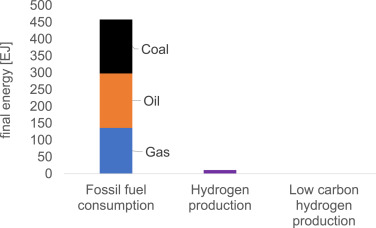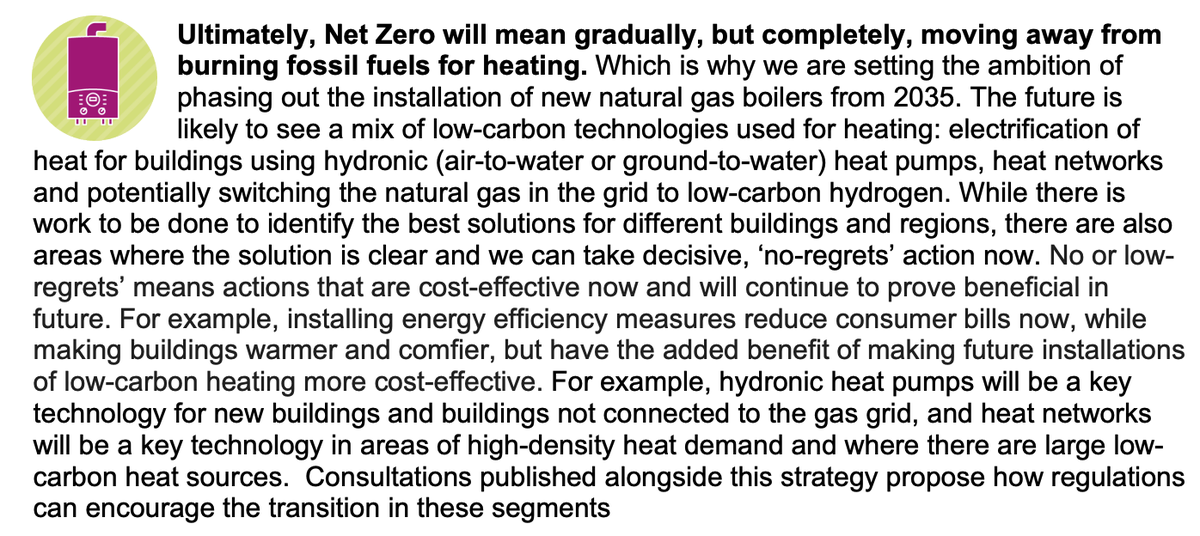
There’s a risk that blue hydrogen will lock us into fossil fuels.
How credible are the promises around blue hydrogen? Ä
And how should policy makers respond?
New paper by me and @heatpolicyrich @RegAssistProj on these and other questions.
THREAD
authors.elsevier.com/a/1e6LW9C%7EIt…
How credible are the promises around blue hydrogen? Ä
And how should policy makers respond?
New paper by me and @heatpolicyrich @RegAssistProj on these and other questions.
THREAD
authors.elsevier.com/a/1e6LW9C%7EIt…

1) Hydrogen appears to be currently peaking on a “hype cycle” i.e., the current expectations are inflated far beyond its likely impact. 

2) Clearly, the fossil fuel industry has a vested interest in maintaining its existing business model, and its strong support for blue hydrogen is primarily driven by self-preservation rather than climate protection concerns.
3) We have seen this before: when the coal industry came under pressure to reduce emissions, it promised clean coal.
Significant policy support was subsequently offered, and clean coal attracted a lot of attention from policymakers.
Significant policy support was subsequently offered, and clean coal attracted a lot of attention from policymakers.
4) After years of pilot projects and substantial public investment in coal power plants with CCS, only a single commercially operating facility remains—one 115 megawatt unit of the Boundary Dam Power Station in Saskatchewan, Canada. 

5) But its primary purpose is to provide a low-cost source of carbon dioxide to the Weyburn Oil Field for enhanced oil recovery.
6) It is notable that most current CCS facilities support fossil gas processing, and the majority are using the captured emissions for enhanced oil recovery.
7) After 30 years of public support and multiple pilot projects, CCS has little to show.9 CCS has not developed as expected, and the CCS that does exist now is mainly supporting increasing fossil fuel extraction.
8) This cautionary tale offers some important lessons for blue hydrogen. Claims by the fossil fuel industry that capturing emissions is feasible and can be done fast need to be carefully examined.
9) Of course, the past is not necessarily a good predictor of the future. Perhaps blue hydrogen will develop in line with expectations; perhaps not. Higher carbon prices could make investments more attractive, in Europe carbon prices have lately exceeded €60 per tonne of CO2.
10) But if we can learn anything from the history of clean coal, then it is this: great expectations and promises by the fossil fuel industry and governments do not necessarily guarantee delivery of fossil-based, low-carbon technologies.
11) The unavoidable residual emissions mean that even though blue hydrogen might achieve significant carbon reductions compared to existing fossil fuel use, it will still contribute to GHG emissions as shown by recent @CREDS_UK analysis. 

@taraconnollyGW @mzjacobson @gnievchenko @Stefan_Hajek @DavidRVetter @DrSimEvans @DavidCebon @howarth_cornell
Apologies for the typo.
12) Claims that oil and gas could be replaced with hydrogen like-for-like are highly questionable. In 2020, 458 EJ of oil, gas, and coal were consumed globally. In comparison, just 10 EJ of hydrogen were produced of which 0.7% is from renewables or CCS. 

13) Green hydrogen should be prioritized over blue while ensuring that green hydrogen is truly green and based on renewable electricity.
14) If policymakers want to ensure that blue hydrogen delivers the expected emissions reductions it will be important to have sound regulation in place. Emissions performance standards require robust estimates of leakage and capture rates.
And thanks to @OneEarth_CP @CellPressNews for inviting us to write this piece.
• • •
Missing some Tweet in this thread? You can try to
force a refresh








